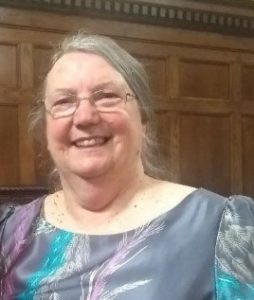Johan
I am a former Geography teacher and lecturer in Further Education with past and current voluntary experience with Women’s Aid, homeless young people and working with refugees supporting them to acquire English language skills and settling in to a new environment and homeland. I was not aware of the existence of PPIE groups or what the abbreviation stood for before my involvement with the BECOME research as I have not been involved in scientific research before. I thought PPIE was related to a financial issue but know now how important PPIE (Patient and Public Involvement and Engagement) is. Researchers and scientists do amazing work but lay people like me get the chance to see studies from the point of view of regular members of the public, make suggestions and understand how the research findings might impact people.
The BECOME research has been a huge learning curve for me partly as I was new to the role and partly as I had to learn new terms, lots of abbreviations, read a lot to understand the issues and get to grips with some challenging discussions. In spite of these concerns, the PPI members have always been incredibly well supported and encouraged by the researchers and enabled us to have more frequent and regular meetings amongst ourselves to be updated, to raise questions or seek clarification outwith the main researcher meetings, the contents of which can sometimes go over my head. Although initially daunted, I have stopped worrying about this and feel comfortable with the discussions in our smaller group knowing that we can always seek help or ask questions of our lead contacts.






.png)